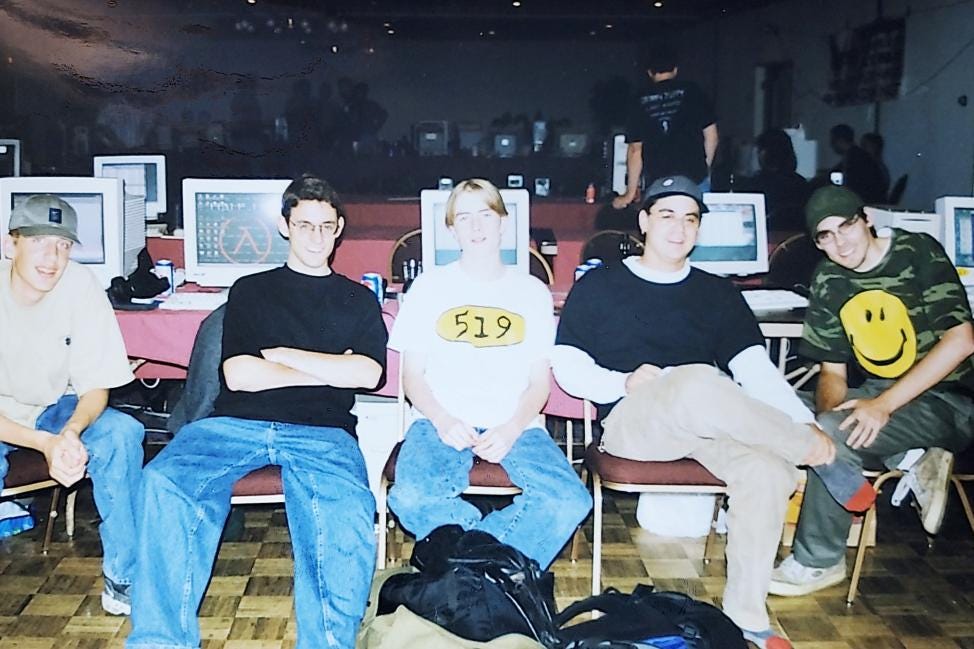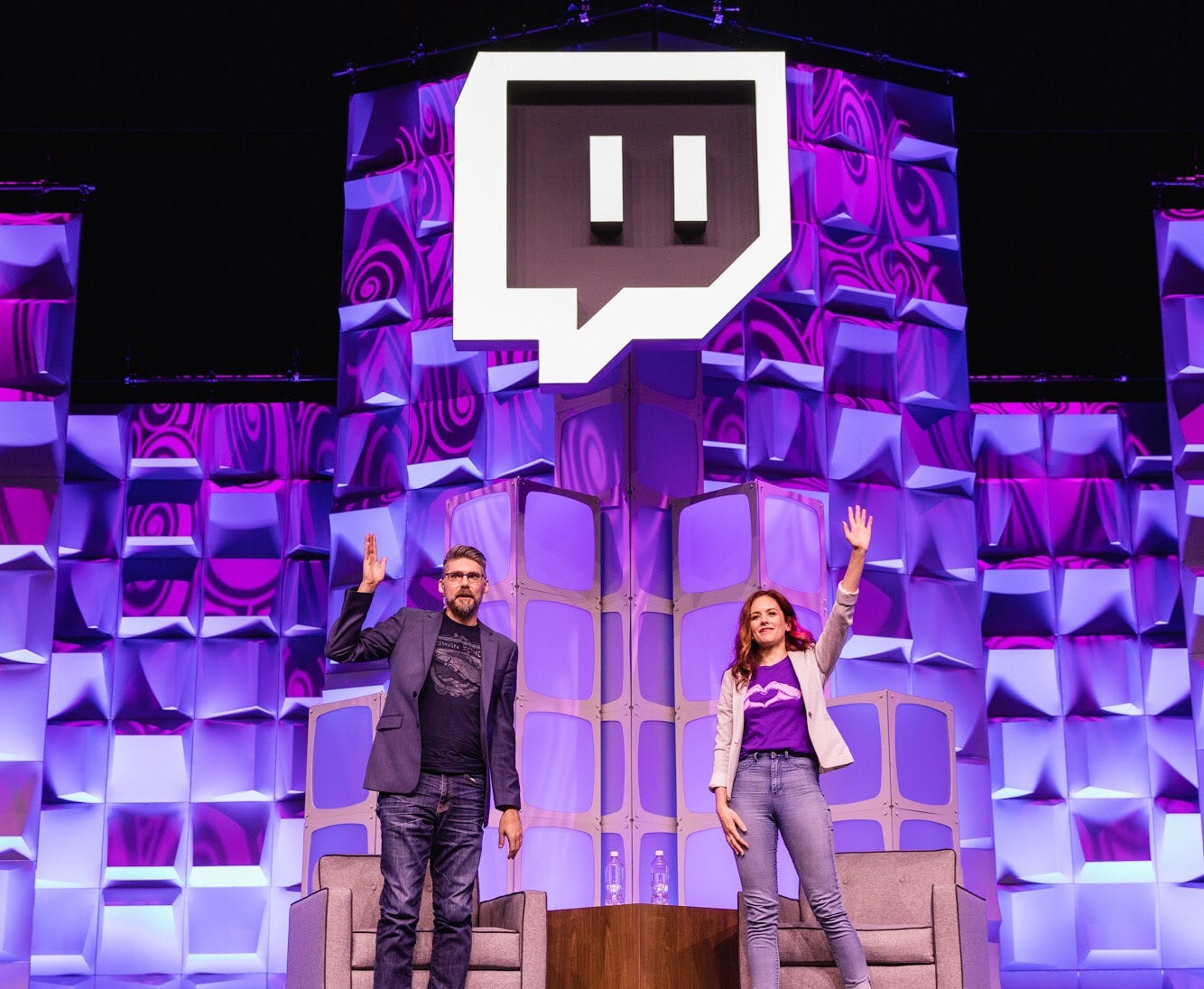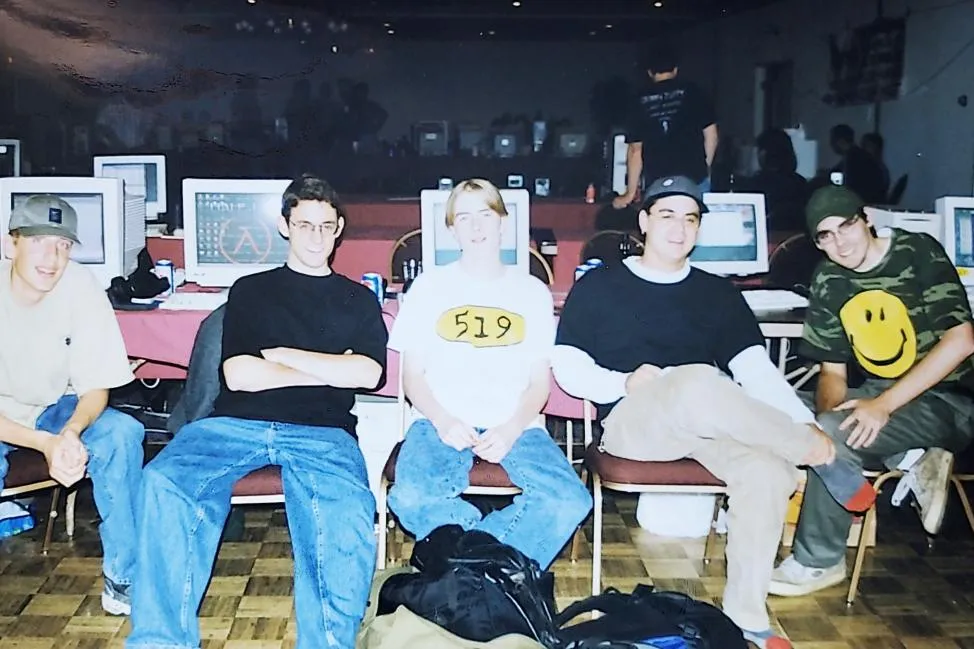When I departed Twitch after 10 years, the question I was asked the most was, “Are you going to go work for another streaming service?”. I understand why people would ask me that question, but to be blunt, the LAST thing I wanted to do was to work for another live-streaming company. I’m proud of what I’ve accomplished in the live-streaming space (both behind the scenes and as a creator) and am eager to continue to support Creators and the streaming community, but after thinking about what I wanted to do next, one thing was clear… I wanted to continue to focus on community and its ability to transform the game industry.
My heart has always rested with the community, and it’s been at the center of my career for 20+ years. Whether starting a BBS in the late 80s, supporting the early efforts of grassroots esports community orgs, or unlocking the power of community through audio & video live-streaming, each step along the way has been deeply embedded in the evolution and growth of community.

Not quite ready to commit to a new full-time job, in early 2022, I began consulting with companies about their brands, their communities (or lack thereof), how to work with Creators, etc. It was nice at first, but I didn’t find much fulfillment in it because I’m someone who wants to throw myself 1000% at whatever I’m doing, and you can’t do that if your contract expires.
Enter Fortis Games and Shawn Foust (the COO). I briefly collaborated with Shawn during my time at Twitch. He wanted to use Twitch to showcase a mobile game his company was working on. That may not seem like a big deal now, but this was back in 2012 when we were BEGGING studios to start building community and connecting with audiences on Twitch. I walked away from that experience with Shawn saying, “he gets it.” He saw Twitch’s potential in reaching an audience, building community, getting direct feedback, and learning who the game’s players were. I always respected and appreciated that. So when he reached out in early 2022 and said, “I’d like to pick your brain about community,” I didn’t hesitate to say, “let’s do it!”
So we started talking about community… We talked about how community helped build and establish Esports into today’s massive industry. We discussed how technology has drastically improved how we build, interact, and maintain our communities. We explored how community and gaming evolved with the dawn and evolution of live-streaming, which is now crucial to the games industry.

And then we started talking about a topic I didn’t think I was familiar with until I looked at it through a lens with Shawn’s help. The topic of community and game development.
I exited that conversation asking myself, “Why IS the relationship between community and game development so disjointed?”
Is it due to the way that Community is typically organized under the Marketing of most video game companies?
Is it because the leadership isn’t convinced that occupying a community lane is a winning strategy?
Is it because the industry has not created or evolved lanes for the community to engage healthily?
Could it be the lack of collaboration between developers and other departments?
Is it a lack of qualitative data or perhaps the refusal to acknowledge it?
Is it because community can be difficult to scale?
Are companies afraid to take a leap of faith and try something different?
The answer is yes. To all of them. The relationship between community and game development in the status quo is incredibly disjointed. A handful of companies do an amazing job at community development and try to create lanes that introduce more transparency, embrace their playerbase, and even allow the community to impact game development. But there are far more companies who treat the community like it is an expendable resource.
That’s confusing to me… because we live in a world where the actions and voice of players, creators, and the overall community is louder and more visible than ever.
When Shawn laid out the vision of Fortis and the studio’s desire to break down the walls between development and community, I told him I was ALL-IN. Fortis’ vision is “Games where you belong.” That’s a powerful statement because it cannot be true unless you are committed to community. And that’s what I felt while doing community consulting work within Fortis before I joined them full-time; game directors who were excited to break down the walls separating Community & Development, designers who wanted to explore in-game tools & mechanics to enhance community building, teams who wished to have better lines of communication to and from the community, and a leadership team who strongly believed in the role and power of community.
But why Community? Why is it a strategy that people should care about? The simple answer is that players were faceless and voiceless for so many years in the games industry, and that is no longer the case. Communities build wikis, organize events, leverage Reddit and Discord, create content, evangelize, welcome new players, support Esports initiatives, and so much more. If studios aren’t embracing community to the fullest, they are choosing to ignore the impact that community can have on the games they release (and the industry as a whole).

The more complex answer is that the games industry has drastically changed over the past ten years. Technology advances have created an environment where traditional marketing is becoming less relevant, and building and supporting a strong community is a successful path forward.
Don’t believe me? Look at E3. Over the past several years, it has been slowly replaced by Summer Games Fest, The Game Awards, and other streamed showcases from publishers and developers. These live events, through co-streaming, reach a larger and more accurately targeted audience because creators share them with their communities. You’ll never achieve physical attendance that matches the reach of a global digital community.

Live events will always have a place in this industry, but you can’t deny that this shift in approach, technology, the rise of creators, and the collaborative efforts of communities is beginning to drastically change how communities interact with games, studios, developers, etc.
The power of community is stronger than ever, and it will only keep gaining strength.
So why did I join Fortis to lead their community efforts as VP of Community Development? It’s because I love and believe in community… and I’m convinced that Fortis is willing to put the time, energy, and resources into an area that has been underserved for too long. I don’t think the industry has fully explored how Community and Development can work together through every phase of a game’s development. I joined because I’m also a player and community leader who has been on both sides of the walls that separate Community & Development and realized the best scenario is the one where the wall doesn’t exist.
I also joined as VP of Community Development because I strongly believe that we need to stop managing communities and start developing them. Management is the “control and operation” of an organization or group. If you think today’s communities want to be controlled and told how to operate, then we have bigger conversations that need to be had. Communities want to be supported, they want to be heard, and they want to be more involved. Development is focused on “change, growth, and improvement” and promotes accountability from both parties (studios and communities).
It may seem like replacing one word with another, but in reality, it represents a significant paradigm shift and philosophical change when working alongside community. This means focusing on and prioritizing building better relationships, empowering community leaders, providing better communication and transparency, and creating meaningful and effective lanes that promote the change, growth, and improvement that come with development. Management is all about telling someone how to do something, development is about figuring out what’s best together and offering support to facilitate the development. This small change may not seem like much, but it’s at the foundation of how Fortis thinks about community from the get-go.
I confidently believe that we can transform and evolve game development through more community development, and together we can create an environment where Community & Development are not disjointed and instead live in harmony.
My days are no longer spent trying to convince company leaders that community is important… instead, my days are spent thinking of new and exciting ways that community and development can work together and reach their full potential.
Fortis is willing to take the leap of faith and let the community have more established lanes and connectivity with the studio. Fortis wants to help shape the future of this industry. As I stated earlier… I’m all in.
AFTER THOUGHTS:
I wrote this blog one week before the GTA6 leak. As I was catching up on the news, I saw some interesting perspectives from other game developers who commented on the community reaction to the leaks. I saw one shared perspective: “There isn’t as much interaction and transparency with players (community) because it can lead to harassment and death threats.”
They aren’t wrong, and that’s sad. While working at Twitch, I experienced almost daily harassment due to the community feeling like there was a lack of communication and action from the company. If communities feel locked out from the companies, games, and things they are passionate about, it often leads to less desirable outcomes… including harassment, misinformation, and angst. I’d argue that these issues will only amplify if efforts aren’t made to try to evolve alongside the community and update antiquated practices that have existed in the games industry for years.
We don’t have all the answers, we have some… but we have one universal truth. We have to try something new. It won’t be an easy path to walk, but it will be worth it if we can build, mend, and sustain new bridges between community and development in ways that have gone unexplored over the past two decades.
Some will think we’re taking on an unwinnable battle, and that’s ok. To others, I hope our ambitions and goals resonate with you. If they do, we may get a chance to cross paths and work together.
I look forward to building a team who shares similar feelings about community and the industry and is willing to innovate, work, and fight on behalf of the players, the community, and the development teams to create impactful change. If that’s you, I hope you’ll keep an eye on https://careers.fortisgames.com/ for Community Development openings, or reach out to me directly and let’s chat.
Authors: djWHEAT
Published:
